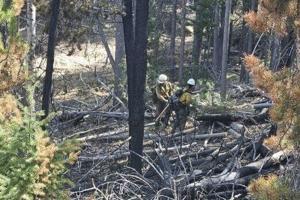The discussions over ITV’s Grace using a fictional football club name (Brighton Royals) rather than Brighton and Hove Albion , and AFCs Wimbledon’s Plough Lane rather than The Amex is similar to one I have frequently with my novelist colleagues and TV production companies I advise. In 2017, when Peter James was researching “Dead if you Don’t”, the book that this episode was based on, he asked me to go to The Albion’s first ever Premier League game as he was abroad. He had arranged behind the scenes access which I augmented with support from former police colleagues and club contacts.
Despite Brighton losing 0-2 to Manchester City, it was a fabulous afternoon and, from Peter’s brief and the club’s co-operation, I was able to report back on the fine detail he needed for the novel. Much of this featured in the book, including actual places, the club’s name and, as cameos, even some real people. For a variety of reasons, there are differences between what you can use in books compared to films and TV programmes.

Those who watch TV drama should be familiar with, for example, police forces having fictional names and locations being given pseudonyms. The general rule for novelists however is that you can use organisations, towns or city names without any problems and many of us do. Peter James and I use Sussex Police in our novels but in the Grace series, this is changed to East Sussex Police.
Equally, authors can use company and brand names providing they don't do so in a disparaging fashion that they're unable to defend. Using real locations can be problematic for a variety of reasons in TV. The production company has told me that for Grace, they and The Albion had every intention of using the Amex and the club’s real name for “Dead if you Don’t” but at the last minute some potential logistical concerns emerged which meant all parties agreed that it would be prudent to make the changes viewers saw.
AFC Wimbledon stepped in. It was fortunate that Plough Lane was available as it is also home to rugby league club, London Broncos but the stars aligned. Over five days in the close season, and then a second "block" during matches, the scenes were filmed.
It was the perfect substitute as it bears many similarities to the Amex, albeit on a smaller scale, which was sorted through visual effects. The pies are amazing too! Sometimes film and TV can’t use real names for commercial reasons, if the owner of the business does not consent or if the location has a history too closely linked to the theme being shot there. Sadly, Devil’s Dyke has been the scene of quite a few murders so in Grace, this was changed to Hobb’s Dyke so bereaved families didn’t conflate the fiction with their own tragedies.
The same for character names. I advise on TV drama and frequently see names changed between script drafts. This is to distance the fictional characters from real people.
None of these constraints apply to authors so readers who then enjoy their favourite novels’ TV adaptations can be forgiven for getting confused over why changes occur. The rules around what creatives can and can’t use are not just restricted to places. In my and Peter James’ debut non-fiction, “Death Comes Knocking”, we wanted to evoke out of season Bognor Regis as that is where I served my police probation.
You may already have an image in your mind, however we wanted to bring it to life. Initially we used an unedited lyric from Chris de Burgh’s hit “Fatal Hesitation”. However, our editor quickly told us that would cost us thousands of pounds to quote (hence not repeating it here) so we fudged it to read the following: "We used to wonder whether Chris de Burgh had Bognor in mind when he wrote his lyrics for 'Fatal Hesitation' about empty cafes, sodden streets and the desolation of a holiday resort in the rain".
No offence to Bognor here of course, I loved my time there! Of course people like to see familiar locations, especially in dramas set so strongly in their communities. Sometimes that’s just not possible but it is always thought through carefully and will never detract from the story..
Health

Why we change names for books and TV

The discussions over ITV’s Grace using a fictional football club name (Brighton Royals) rather than Brighton and Hove Albion, and AFCs Wimbledon’s Plough Lane rather than The Amex is similar to one I have frequently with my novelist colleagues and TV production companies I advise.















